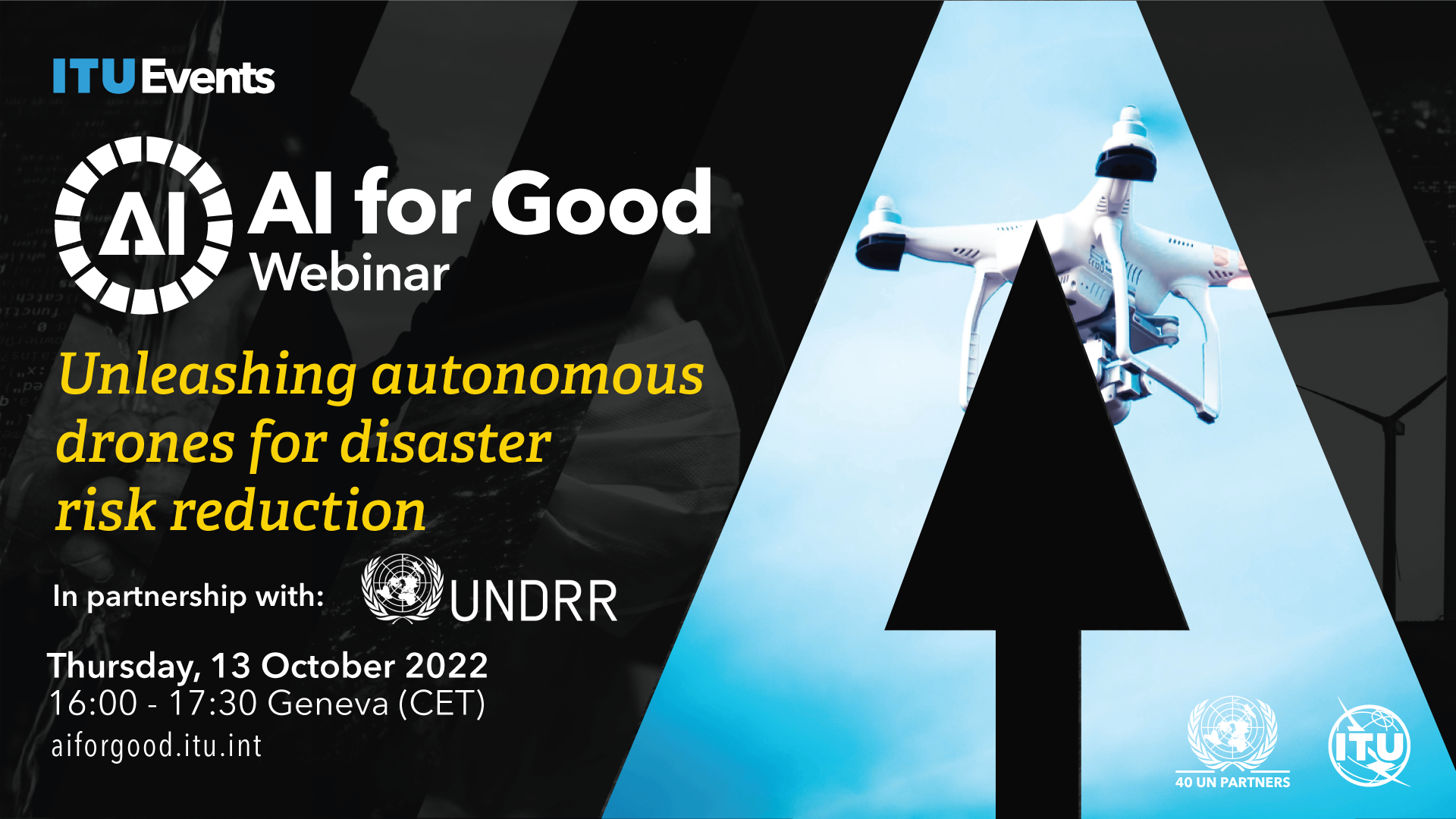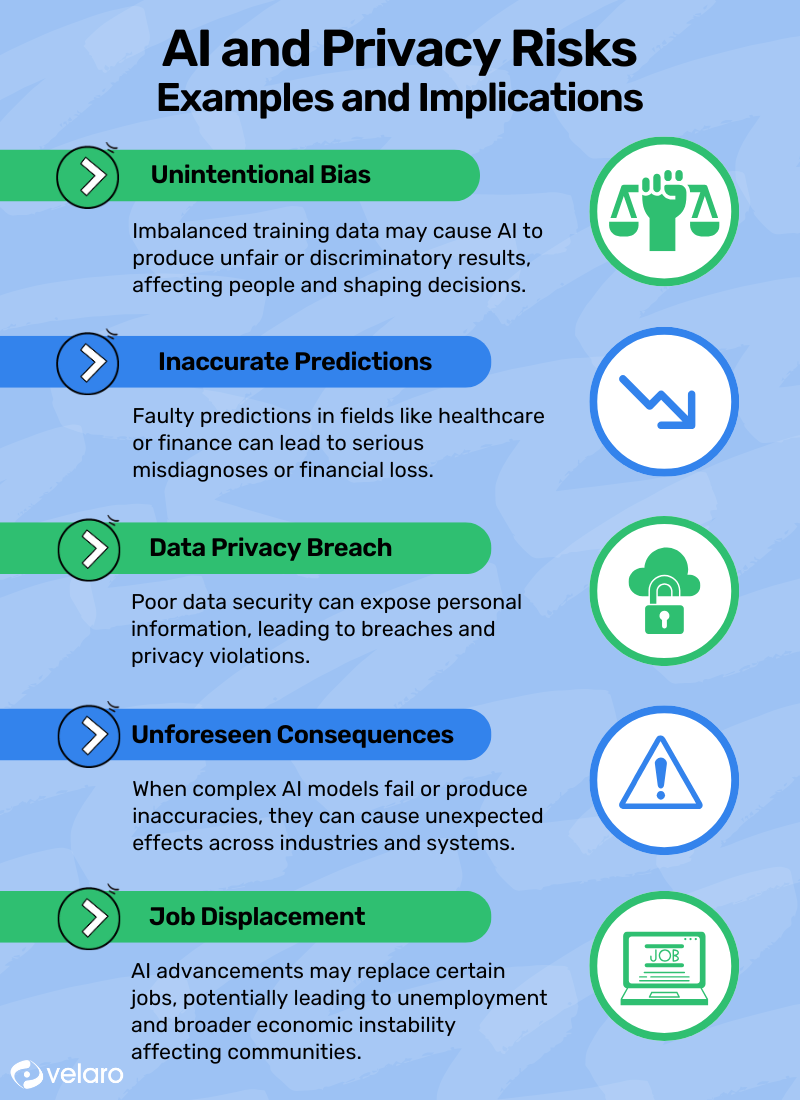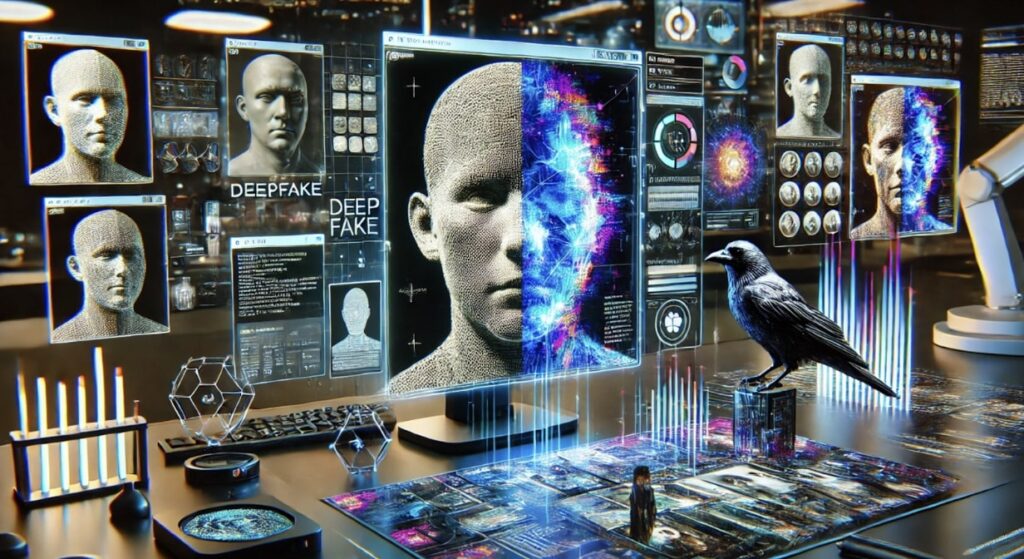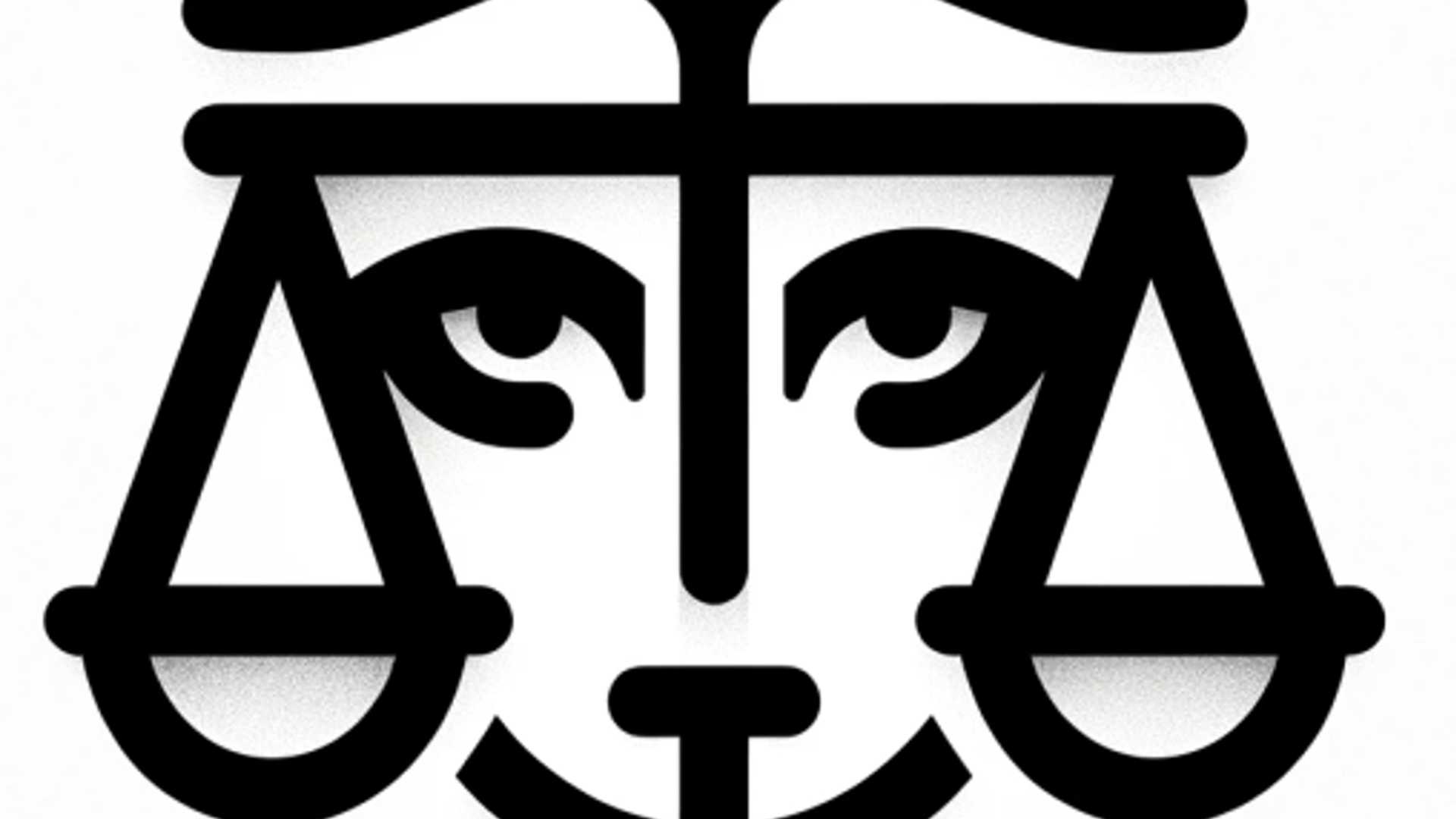Fear of AI | e-Discovery Team
These risks are real and ignoring them would be foolish. Yet, managing them through education, thoughtful engagement, and conscious platform selection is both possible and practical.
Bias and Inaccuracies
AI is only as unbiased and accurate as its training data. Misguided reliance can perpetuate discrimination, misinformation, or harmful stereotypes. For instance, facial recognition systems have shown biases against minorities due to skewed training data, leading to wrongful accusations or arrests. Similarly, employment screening algorithms have occasionally reinforced gender biases by systematically excluding female candidates for certain positions. Here are two action items to try to control this danger:
Privacy Concerns
AI platforms often require extensive data collection to operate effectively. This can lead to serious privacy risks, including unauthorized data sharing, breaches, or exploitation by malicious actors. Examples include controversies involving smart assistants or social media algorithms collecting vast personal data without clear consent, resulting in regulatory actions and heightened public mistrust. Here are two action items to try to control this danger:
Loss of Human Judgment
Dependence on AI for decision-making may gradually erode human judgment and critical thinking skills. For instance, medical professionals overly reliant on AI diagnostic tools might overlook important symptoms, reducing their ability to critically assess patient conditions independently. In legal contexts, automated decision-making tools risk undermining judicial discretion and nuanced human assessments. Here are two action items to try to control this danger:
Deepfakes and Manipulation
Advanced generative AI can fabricate convincing falsehoods, severely challenging trust and truth. Deepfake technology has already been weaponized politically and socially, from falsifying statements by world leaders to creating harmful misinformation campaigns during elections. This technology can cause reputational harm, escalate political tensions, and erode public trust in media and institutions.

Here are two action items to try to control this danger:
Loss of Human Control
The automation of critical decisions in fields like healthcare, finance, and military operations might reduce essential human oversight, creating risks of catastrophic outcomes. Autonomous military drones, for instance, could inadvertently cause unintended casualties without sufficient human control. Similarly, algorithm-driven trading systems have previously triggered costly flash crashes on global financial markets. Here are two action items to try to control this danger:
Employment Disruption
Rapid AI-driven automation threatens employment across many industries, potentially causing significant societal disruption. Job displacement is particularly likely in sectors like transportation (e.g., self-driving trucks), retail (automated checkout systems), and even professional services (AI-driven legal research tools).

Without proactive economic and educational strategies, these disruptions could exacerbate income inequality and social instability. Here are two action items to try to control this danger:
Existential and Long-term Risks
The theoretical future of AI—especially Artificial General Intelligence (AGI)—brings existential concerns. AGI could eventually become powerful enough to outsmart human control and act against human interests, either unintentionally or maliciously programmed. Prominent voices, including tech leaders and ethicists, call for rigorous alignment research to ensure future AI systems adhere strictly to beneficial human values.

Here are two action items to try to control this danger:
I had an odd thought after writing the first draft of this article and deciding to limit the top dangers to seven. Is there any correlation here between the seven AI dangers and what some Christians call the seven cardinal sins, also called the seven deadly sins. Turns out, an interesting comparison can be made. So, I tweaked the title to say cardinal, instead of key, to set this comparison. You don’t have to be religious to recognize the wisdom in many age-old warnings about human excess, ego, and temptation. The alignment is not about doctrine, it’s about timeless human tendencies that can shape technology in unintended ways.
Whether you view these as moral metaphors or cultural parallels, they offer a reminder: the greatest risks of AI don’t come from the machines themselves, but from the very human impulses we embed in them. Fear can be a useful alarm but shouldn’t dictate complete avoidance. Skilled individuals who actively engage with AI can responsibly manage these dangers, transforming potential pitfalls into opportunities for growth and innovation. Regular education, deliberate practice, and informed skepticism are essential.
Beginners: Caution is Your Best Friend
If you’re new to AI, proceed with caution. It is just words but there are still dangers, much like using a sharp saw. Begin with simple tasks, build your skills incrementally, and regularly verify outputs. Daily interaction and study helps you become adept at recognizing potential issues and avoiding dangers. Beginners face greater risks primarily due to their unfamiliarity with AI’s strengths, weaknesses, and possible hazards. Without experience, it’s harder to spot misleading or biased information, inaccuracies, or privacy concerns that experienced users notice immediately.
Begin your AI journey with simple, low-risk tasks. Ask straightforward informational questions, experiment with creative writing prompts, or use AI for basic brainstorming. This incremental approach helps you understand how generative AI works and what to expect from its outputs. As your comfort with AI grows, gradually tackle more complex or significant tasks. This progressive exposure will refine your ability to critically evaluate AI outputs, identify inconsistencies, and notice subtle biases or inaccuracies.
Practice, combined with clear guidance, enhances your proficiency with AI systems. Those who regularly read and write typically adapt more quickly because AI is fundamentally a language-generating machine. By consistently interacting with tools like ChatGPT, you’ll sharpen your ability to recognize potential issues, determine how AI can effectively support your tasks, and safely integrate AI into important decisions. Regular engagement often leads to delightful moments of surprise and insight as AI’s suggestions become increasingly meaningful and valuable.
Ultimately, regular and thoughtful use reduces risks by improving your skill in independently assessing AI-generated content. Becoming proficient with AI requires careful, consistent practice and study, along with healthy skepticism, critical thinking, and diligent verification.
The fear of AI is real—and it’s not foolish. It comes from a deep place of concern: concern for truth, for privacy, for jobs, for control, and for the future of our species. That kind of fear deserves respect, not ridicule. But fear alone won’t protect us. Only skill, knowledge, and steady practice will. AI is like a power tool: dangerous in the wrong hands, powerful in the right ones. We must all learn how to use it safely, wisely, and on our terms, not someone else’s, and certainly not on the machine’s.

This isn’t just about understanding AI. It’s about understanding ourselves. Are the seven deadly sins somehow mirrored in today’s AI? That wouldn’t be surprising. After all, AI is trained on human language—on our books, our news, our history, and our habits. The real danger may not be the tech itself, but the humanity behind it.
That’s why we can’t afford to turn away in fear. We need the voices, judgment, and courage of those wise enough to be wary. So, summon your courage. Don’t leave this to others. Learn. Practice. Stay engaged. That’s how we keep AI human-centered and aligned with the values that matter most.
Learn AI so you can help shape the future—before it shapes you. Learn how to use it, and teach others. Like it or not, we are all now facing the same existential question:
Are you ready to take control of AI—before it takes control of you?
I give the last word, as usual, to the Gemini twin podcasters that summarize the article: Echoes of AI on: “Afraid of AI? Learn the Seven Cardinal Dangers and How to Stay Safe.” Hear two Gemini AIs talk about this article for 14 minutes. They wrote the podcast, not me. Ralph Losey Copyright 2025. — All Rights Reserved


















